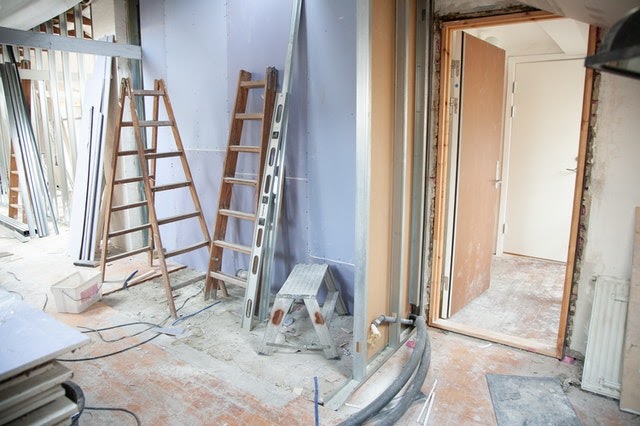Professional contractors are licensed and trained, which means that they know what building regulations apply. They know how to meet safety and quality standards and, in most states, have comprehensive insurance coverage. Remodeling contractors are specialized and can have sub-specializations as well, including bathrooms, basements, kitchens, and more.
What Do Remodeling Contractors Do?
A remodeling contractor is primarily in charge of turning the vision of the client into reality. They work with the client to create realistic expectations that meet budget requirements. Then, they organize the project and bring in subcontractors and handymen, if necessary.
Some remodeling contractors handle most of the work themselves, while others organize projects and hire others to complete them. Regardless of their approach, each remodeling professional needs to prepare for certain tasks when starting their business. This may include:
- Planning and budgeting for a remodeling project;
- Making estimates for the services and making adjustments to fit the client’s budget;
- Coordinating and monitoring the construction process;
- Communicating with clients to provide updates as needed;
- Sourcing and procuring materials for the project and including them in the overall budget.
Remodeling is a complicated business that requires many different skills, including communication, problem-solving, and organizational abilities. Good remodelers are also great at multi-tasking, making sure various processes are running in parallel, and often working with multiple clients simultaneously.
A remodeling contractor also needs to attract new clients and retain existing ones.
Remodeling Contractors vs. General Contractors
A general contractor is a professional who coordinates and supervises a construction project. These pros can work on projects involving building from scratch, remodeling, renovations, or restorations. A remodeling contractor is usually a general contractor who works specifically on building renovations and home improvements.
Both general contractors and remodeling contractors have contractors’ licenses, are bonded, and have contractor insurance. Licensing is essential since remodelers deal with many different specialized tasks that must comply with local regulations and standards. Both are bonded and insured, with liability, workers’ compensation insurance, and other relevant coverage. Regardless of their specialization, contractors have an insurance certificate as proof that they are bonded and insured.
Another similarity is that both general and remodeling contractors tend to do the same training when going to vocational institutions and undertaking an apprenticeship. Additionally, both need to have knowledge of construction, project planning and management, and business. Often, a remodeling contractor starts as a general contractor.
Remodeling Contractors vs. Handymen
The main difference between remodeling contractors and handymen is that one is licensed while the other is usually not. Remodeling contractors carry out many complex and specialized tasks and need to comply with building regulations. While some handymen are licensed, not all are. Furthermore, some have insurance while others may not be covered.
Another major difference between the two is the scope of their work. Handymen often specialize in a single task or related tasks. Handymen usually do simple jobs, like painting or repairing a deck, laying tiles, unclogging pipes, patching holes in walls, and so on. Remodeling contractors often work on more complex tasks, such as building an entire deck, renovating a room, or installing plumbing or electrical systems.
The scope of work also differs between the two. The larger your project, the more likely it will require specialized work, such as plumbing or electrical installation. Contractors can bring in specialists to handle these delicate tasks.
Despite their differences, handymen and remodeling contractors work in the same industry, and often a remodeling contractor will hire handymen as subcontractors.
Remodeling Contractors vs. Construction Contractors
Construction contractors, or builders, are in charge of directing all aspects of construction projects. Construction contractors deal with clearing the site, setting the foundation, and overseeing the exterior and interior structural elements. They also provide estimates and create budgets for the project.
A construction contractor will often not concern themselves with any mechanical work, such as the plumbing, electrical heating, and cooling systems. They do, however, ensure the safety of others working on the job site.
Remodeling contractors differ from construction contractors in that they work on existing structures. They direct and carry out the remodeling process, including mechanical work such as electrical and plumbing.
Both professionals ensure that all subcontractors have the necessary equipment, complete their work on schedule, and clean up the site after they get done. Both contractors work with subcontracting specialists in areas where they lack expertise or licensing. Remodeling contractors are more likely to work on projects themselves rather than subcontracting.
A fundamental similarity between construction contractors and remodeling contractors is that they are both licensed professionals. Both fields involve specialized tasks requiring compliance with building regulations. Both remodeling and construction contractors are general contractors who have concentrated on specific subsets of the construction process.
Remodeling contractors often work on residential or smaller renovation projects. Construction contractors often work on larger projects such as multi-unit residential and commercial projects.
How Much Do Remodeling Contractors Make?
According to ZipRecruiter, remodeling contractors earn an average of $24 per hour and $50,264 per year. Entry-level workers earn $30,000 a year, while the top earners can make as much as $180,000. The actual pay you may receive as a remodeling contractor can vary based on several factors, such as the number of years of experience you have, your location, level of education, and whether or not you own your business. Earning potential is exponential for those remodeling contractors who own a company because they can bid on multiple projects. They may also take on larger projects.
The job outlook for remodeling contractors is very positive. According to the U.S. Bureau of Labor Statistics, construction jobs will increase by 5% from 2019 to 2029, which is higher than the national average. With the rise in construction and remodeling projects across the country, there will always be jobs for remodeling contractors who can market their skills and do quality work.


